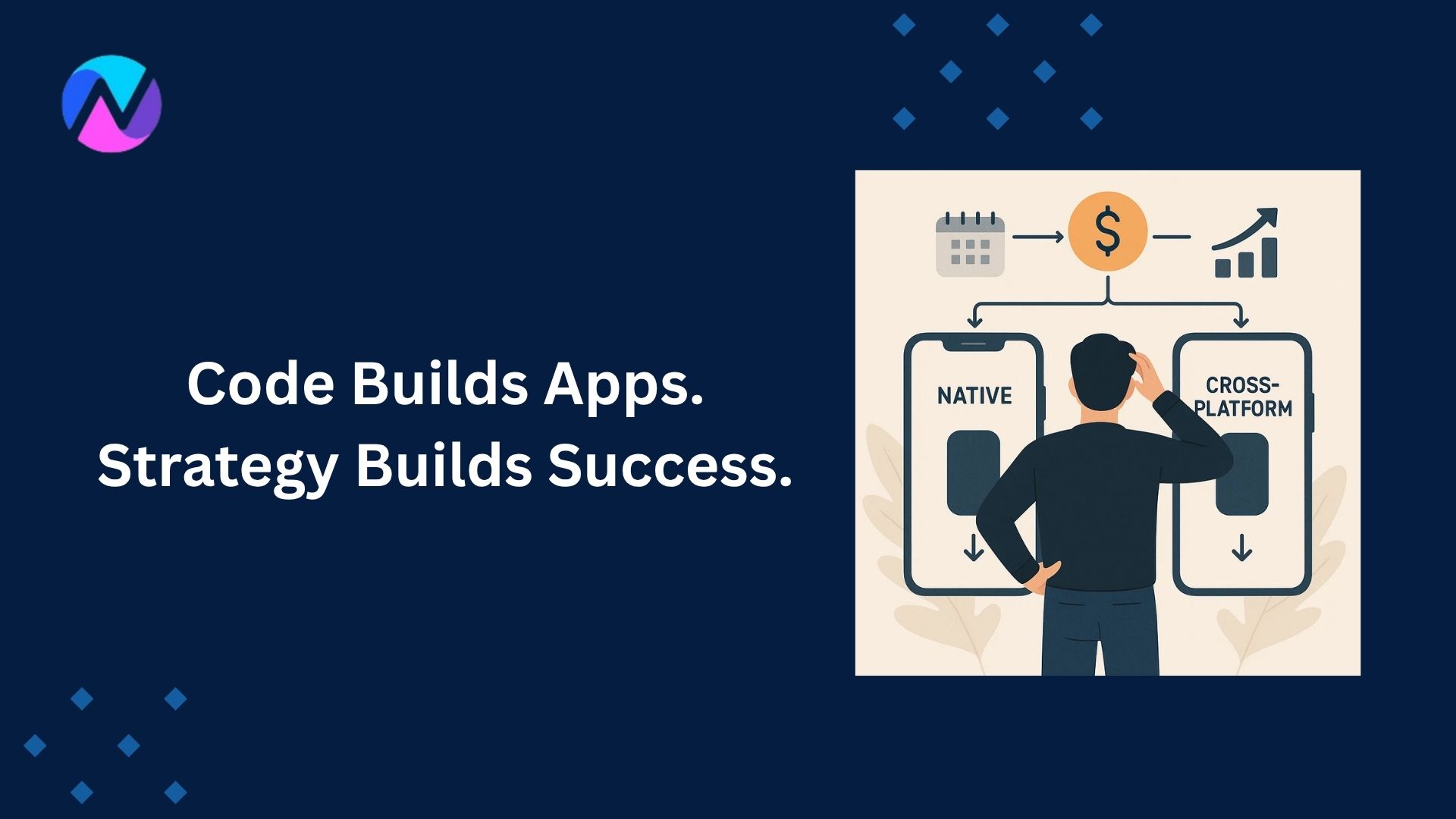
Introduction
In 2025, mobile apps are no longer a luxury — they’re a necessity for every business that wants to stay connected, relevant, and competitive. But when it comes to building your app, one key decision shapes everything:
👉 Should you go native or cross-platform?
At Neptune Infotech, we help businesses make this choice based on their goals, timeline, and growth strategy. In this guide, we’ll break down what each approach means, their pros and cons, and how to decide which one is right for you.
Understanding the Basics
Native App Development
A native app is built specifically for one platform — either Android or iOS — using platform-specific languages and tools.
✅ Best for: High-performance, complex apps with advanced device features (camera, GPS, AR, etc.)
⚙️ Built with: Platform-native tools provided by Apple and Google
Cross-Platform App Development
A cross-platform app is developed using a single codebase that works across multiple platforms, like Android and iOS, with minimal adjustments.
✅ Best for: Apps that need to reach a wider audience quickly, while staying cost-efficient
⚙️ Built with: Frameworks like Flutter, which provide near-native speed and UI consistency
Both approaches have their strengths — the right one depends on your app’s purpose, complexity, and audience.
The Key Differences at a Glance
| Feature | Native App | Cross-Platform App |
|---|---|---|
| Performance | Exceptional — optimized for one OS | Very good — near-native experience |
| Development Time | Longer (two separate builds) | Faster (single codebase) |
| Budget | Higher | More cost-effective |
| Maintenance | Separate updates per platform | Unified updates |
| User Experience | Flawless — fully aligned with OS design | Consistent — adaptable across platforms |
| Best For | Gaming, high-graphics, or performance-heavy apps | Startups, business apps, and MVPs |
When to Choose Native App Development
If your app needs precision, advanced integrations, or extremely high responsiveness, native is the way to go.
Choose native if:
- You want maximum performance and reliability
- Your app relies on device hardware like camera, sensors, or Bluetooth
- You’re targeting platform-specific features or deep integrations
- You have the budget and timeline for separate builds
Native apps feel smoother and integrate better with each device’s ecosystem — ideal for brands that value perfection over speed.
When to Choose Cross-Platform App Development
If your goal is to reach both Android and iOS users faster and more efficiently, cross-platform development offers the best balance.
Choose cross-platform if:
- You want faster time-to-market
- You have a limited budget
- You need a consistent brand experience across devices
- You plan to iterate and update frequently
At Neptune Infotech, we use modern frameworks like Flutter to deliver high-performance, beautiful apps that look and feel native — while saving time and cost.
It’s the perfect approach for startups, e-commerce businesses, and growing brands looking for quick scalability.
Balancing Time, Budget, and Scalability
When deciding between native and cross-platform, three factors matter most:
⏱️ Timeline
Need to launch quickly? Cross-platform development helps you go live faster with a single codebase.
If time isn’t an issue and you need precision — go native.
💰 Budget
Cross-platform development is usually more cost-effective because you only build once.
Native apps require separate teams and longer development cycles.
📈 Scalability
If your app will expand with complex, performance-heavy features, native offers more flexibility long-term.
For scalable business apps and MVPs, cross-platform is efficient and easy to maintain.
The Neptune Infotech Advantage
At Neptune Infotech, we don’t just pick a framework — we pick the right approach for your goals.
Our team of expert developers, designers, and strategists evaluate every project individually to recommend what suits your:
- Budget and timeline
- Target audience
- Technical needs and integrations
- Long-term business vision
Whether it’s a fast, scalable Flutter app or a native solution built for precision — we ensure performance, design, and user satisfaction come first.
Conclusion
There’s no one-size-fits-all answer to the native vs. cross-platform debate — only what’s right for your business.
Native apps deliver unmatched power and performance.
Cross-platform apps offer speed, reach, and flexibility.
At Neptune Infotech, we combine strategy, design, and technology to help you make the best choice — and turn your idea into a high-performing mobile experience.
📱 Let’s build the app your business deserves.
Contact Neptune Infotech today to start your mobile journey.


